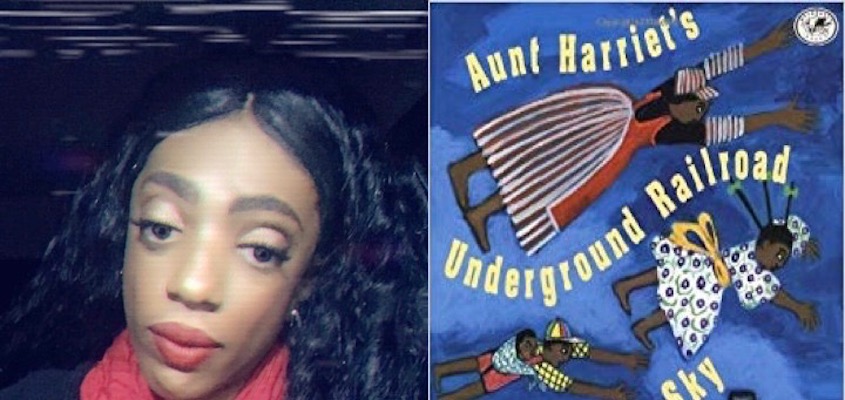by ERICA CAINES

Black adults must not allow “Hollywood to fill in the blanks” in our children’s understanding of Black history.
“We are in a time where individualism is encouraged over community.”
In this feature, we ask educators to list books they most enjoy teaching in their communities. Contributors include professors, graduate students, artists, journalists, organizers, activists, and other community leaders. Readers of the Black Agenda Report understand that the university classroom isn’t the only place where learning happens. Submissions therefore include lists of books that are taught at community workshops, mosques, churches, prisons, libraries, the local preschool, or even a weekly book study on one’s front porch. This week’s contributor is Erica Caines.
One of the many things that sadden me is the warped and shallow conversations about “representation.” There is a fixation on “seeing ourselves” without truly knowing or understanding ourselves. This is the reason I started Liberation Through Reading, a children’s book gifting initiative that provides free Black centered books to Black children, written by Black authors. At each event, I talk about the importance of cultivating home libraries and the importance of seeing ourselves in our homes. There are a variety of books that range from picture book/ early reader to college level.
“There is a fixation on ‘seeing ourselves’ without truly knowing or understanding ourselves.”
What has driven me to create this program is the reliance on Hollywood narratives to tell stories we are more than capable of telling ourselves and have. When Hollywood tells our stories or gives us a platform to tell our stories, we are often left wanting more and that is because we are unfamiliar with these stories until they are put on a big screen. That is because our colonized education system gives us bite-sized versions of our history and we then look to Hollywood to fill in the blanks.
Liberation Through Reading seeks to foster the love of reading in our children through representation so that we don’t lose that hunger for our stories and histories as an adult— so that we aren’t misinformed about our stories and histories because we never sought to learn it outside of the Hollywood lens.
The recent release of the movie Harriet, and the controversy surrounding the Hollywood narrative helped me understand the importance of Liberation Through Reading. Below, I’m going to discuss three books offered for free to Black children in Black communities about an abolitionist and Black American legend, Harriet Tubman.
Harriet Tubman
Harriet Tubman didn’t take no stuff
Wasn’t scared of nothing neither
Didn’t come in this world to be no slave
And wasn’t going to stay one either
“Farewell!” she sang to her friends one night
She was mighty sad to leave ‘em
But she ran away that dark, hot night
Ran looking for her freedom
She ran to the woods and she ran through the woods
With the slave catchers right behind her
And she kept on going till she got to the North
Where those mean men couldn’t find her
Nineteen times she went back South
To get three hundred others
She ran for her freedom nineteen times
To save Black sisters and brothers
Harriet Tubman didn’t take no stuff
Wasn’t scared of nothing neither
Didn’t come in this world to be no slave
And didn’t stay one either
And didn’t stay one either
by Eloise Greenfield, Honey, I Love
Honey, I Love , by Eloise Greenfield
My earliest recollection of this biographical poem is first grade. My teacher, a proud Pan-African Brooklynite, assigned the class with the task of memorizing the poem to read aloud at an assembly for a later date. Twenty-seven years later, I can still hear her yelling “Harder! Fiercer!” when I read this poem to my son and got to “wasn’t scared of nothing either.” What was drilled into me wasn’t simply a poem, but a testament to the character of Tubman. This wasn’t only a poem my 1st-grade teacher had me memorize but also made me feel.
Black Agenda Report for more